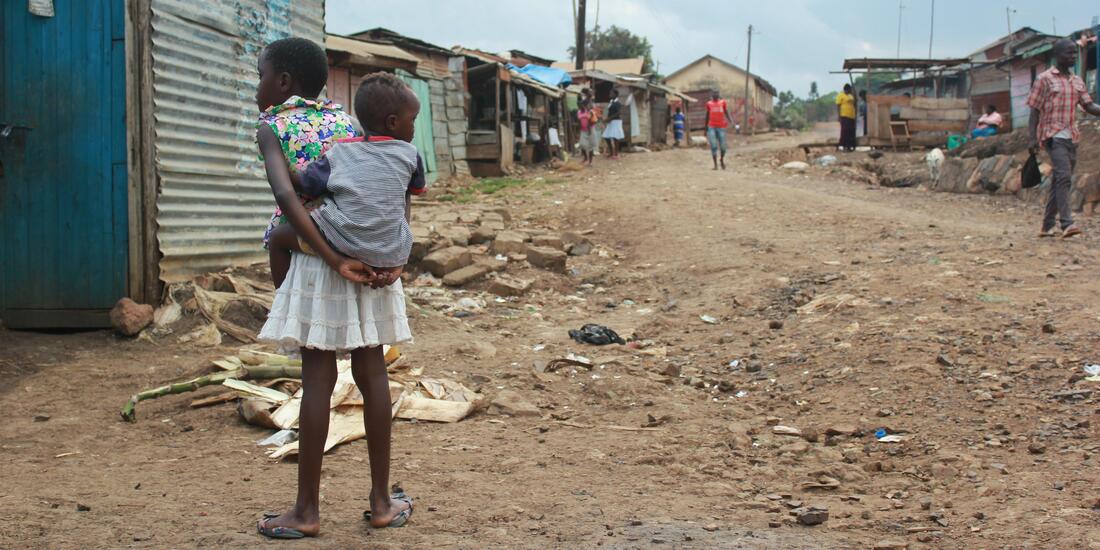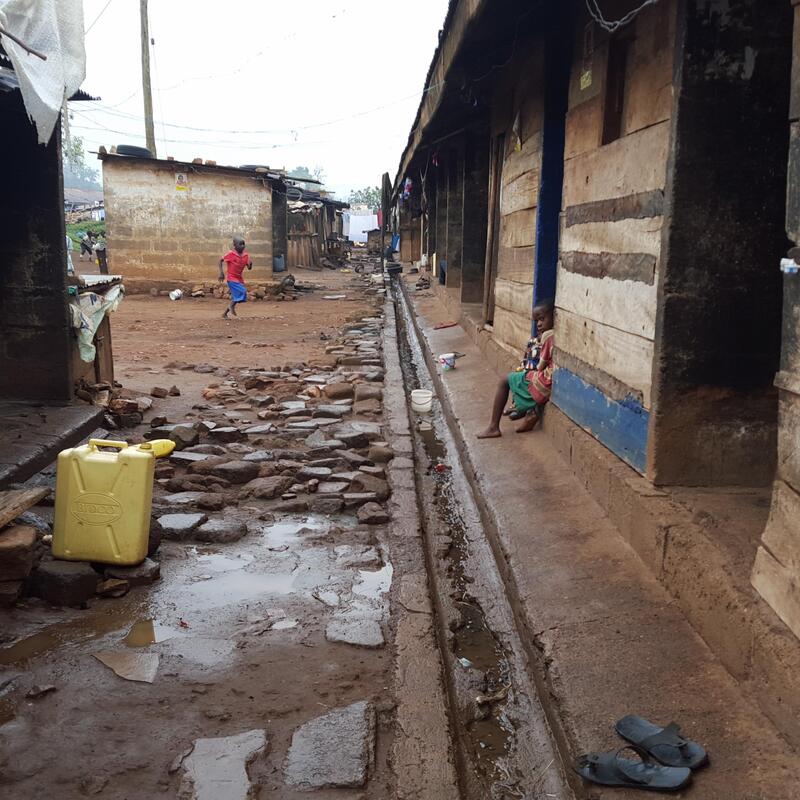Only 13.4% of Ugandan children are enrolled in pre-primary education. This drops to 6.7% or children from the poorest households. Primary completion rate has declined from 60 per cent in 2001–2005 to about 55 per cent in 2011–2015. Save the Children state that one in four families cannot afford to visit a health facility or buy medication and 29% of children under five suffer stunting. Half the population in Uganda are under 15 years old (the world average is 27%). Human Rights Watch estimate that over 56% of Uganda’s 37 million people are under the age of 18 and are the single largest demographic group living in poverty. UNICEF Uganda estimate that 55% of children aged 0–4 in Uganda live in poverty and 24% live in extreme poverty. Why work in Jinja? Slum communities surrounding Jinja in Eastern Uganda face a myriad of challenges. Located on the eastern bank of the Nile, around 20,000 people are crowded into eight slum areas. As a result of the construction of the Owen Falls Dam (a hydroelectric power station) the presence of a railway line to Kenya (Uganda Railways Corporation) and the access to lake waters, Jinja initially grew into a premier industrial hub. However, during the political instability under the presidency of Idi Amin (1971-79) much of its economic base collapsed and the area was left with widespread unemployment and poverty.
Like all local governments in Uganda, Jinja depends heavily on the central government for revenues, but the funds are rarely enough to pay for the staff and services necessary to keep up with growth. In the slum areas, this has resulted in endemic poverty, destructive livelihoods, poor hygiene and sanitation. Crime rates are high and there is a lack of access to rights and services.
Women around Jinja are particularly at risk, with a prevalence of HIV/AIDS resulting in single mother, child and grandparent headed households. High levels of alcoholism often lead to domestic violence and abuse. Child sacrifice has become a growing problem in Uganda. The practice is rooted in traditional beliefs, and a number of socio-economic and cultural factors (poverty, weak legislation and poor parenting) have been put forth by analysts to explain the sudden increase in its occurrence. Specific legislation and grassroots awareness and training is needed to eradicate the problem. All these challenges have led to unsafe environments for children, leaving them vulnerable to maltreatment, neglect, exploitation and child sacrifice. Facing these problems for years, the hard-pressed communities around Jinja have struggled against a growing sense of apathy and a lack of hope to see change. Support usComments are closed.
|
RECEIVE OUR EMAILSBlog Categories
All
Archives
July 2024
|
|
JOIN US ON SOCIAL MEDIA
|
Annual Report | Contact Us | Jobs | Media Centre | Resources | Shop
Accessibility & Policies: Accessibility | Equity, Diversity & Inclusion Policy | Complaints| Privacy Policy | Safeguarding
Accessibility & Policies: Accessibility | Equity, Diversity & Inclusion Policy | Complaints| Privacy Policy | Safeguarding
Children on the Edge, 5 The Victoria, 25 St Pancras, Chichester, West Sussex, PO19 7LT, UK | 01243 538530 | [email protected]




 Give monthly
Give monthly Fundraise for us
Fundraise for us RSS Feed
RSS Feed
